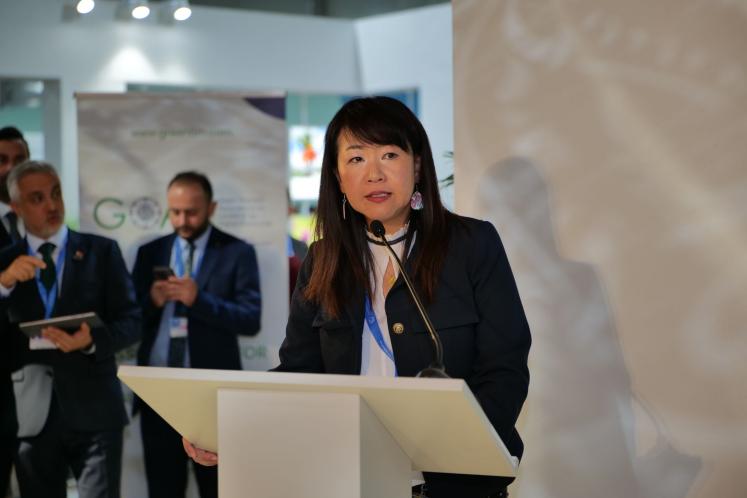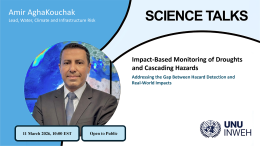If we want real sustainability and a way to live in harmony with nature, we need our economic, social, environmental and governance goals to all pull in the same direction; policies across every sector – from the local level all the way up to the global stage – must align. To do this, we should consider how to synergize and coordinate environmental laws and policies across different ecosystems, and ensure that all sectors support environmental and sustainable goals rather than clashing with each other.
Our planet’s environment of landscapes and oceans serves as a dynamic, complex, and multifunctional space where diverse stakeholders pursue their unique interests and priorities. Conflicts and compromises often arise from these interactions, posing significant challenges to both environmental sustainability and social objectives such as equity and inclusion. These tensions are influenced by a blend of local traditional practices and external forces, including market demand, subsidies, intellectual property frameworks, profit opportunities, and the drive for standardized commodities.
Addressing these complexities requires policy coherence to balance such competing priorities effectively. By fostering integrated approaches that consider environmental, social and economic dimensions, policymakers can navigate the challenges of managing the environment, promoting sustainability while ensuring inclusive and equitable outcomes.
Armed with this vision, last week at COP29 I had the privilege of contributing to discussions that aimed to address critical challenges in achieving a sustainable, equitable future. Through a series of impactful side events, I joined global leaders and stakeholders to explore solutions that align climate action with socio-ecological resilience, equity, and the UN’s Sustainable Development Goals (SDGs).
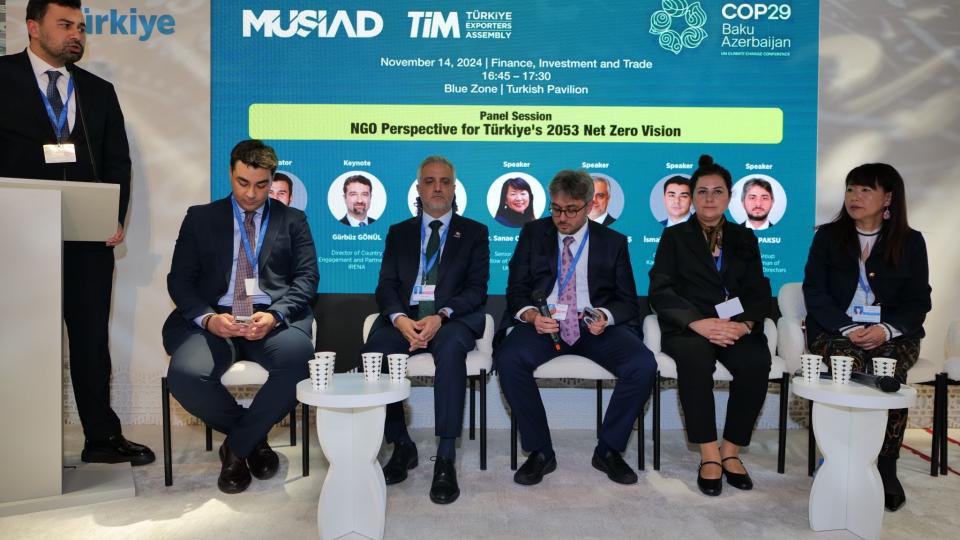
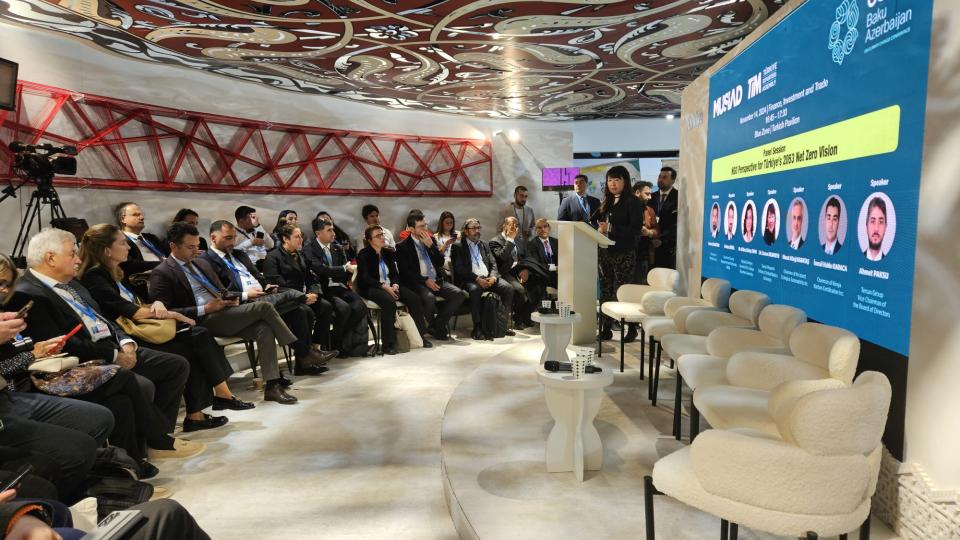
Promoting rural innovation ecosystems
At the COP29 Türkiye delegation pavilion, I shared insights from the InnovationGUIDE project during a panel discussion on Türkiye's green transition journey and its ambitious Net Zero target for 2053. I spoke about the role of innovative ecosystems, entrepreneurship and economic development, especially in rural areas, in driving sustainable transformation.
Here, I would like to highlight five critical areas that require targeted attention to foster entrepreneurship and sustainable, innovative ecosystems in societies:
- Physical Capital: Adequate physical resources and infrastructure are essential for enabling innovation and growth. This includes the availability of spaces such as incubators for start-ups, supportive communities, and well-functioning, affordable logistics and equipment. Proper infrastructure ensures that entrepreneurial activities can thrive.
- Financial Capital: Access to both public and private funding is crucial. Beyond ensuring availability, the accessibility and usability of these funds must be streamlined. For instance, insights from Turkish case studies reveal that while sound policies are in place, incorporating local voices into decision-making processes remains vital. Financing efforts should extend beyond metropolitan areas to encompass underserved regions. Furthermore, funding mechanisms should adopt proactive approaches to citizen engagement, enabling more inclusive participation rather than solely expecting individuals to navigate complex funding channels.
- Human Capital: Investments in education are fundamental to cultivating an entrepreneurial, innovative, and sustainable mindset, starting from high school and extending to university-level education. Peer-to-peer learning models have proven particularly effective, with examples including drone-assisted farming, AI-driven soil health monitoring, and the integration of renewable energy technologies.
- Social Capital: Building robust networks across diverse stakeholders, sectors, regions, and even international partners is critical. Identifying regional hotspots that can serve as hubs for multi-sectoral and multi-actor collaboration is key to enhancing connectivity and fostering innovation.
- Digital Capital: Leveraging digital tools and platforms plays a pivotal role in knowledge sharing, community building, and expanding networks. Digitalization facilitates the development of partnerships and enables international collaborations, making it an indispensable element of modern innovation ecosystems.
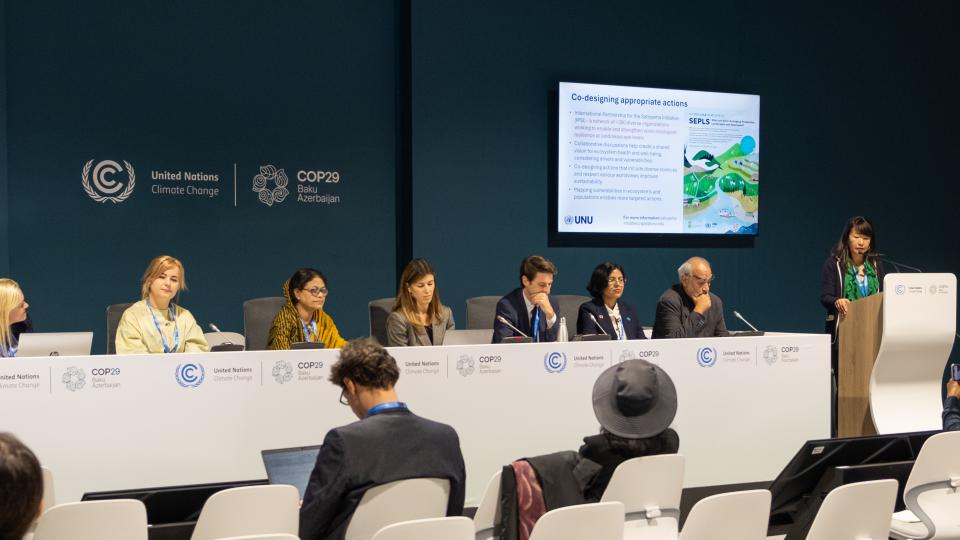
Addressing these interconnected areas holistically is essential for enhancing the resilience and sustainability of ecosystems while advancing equitable development. A just green transition hinges on empowering local economies by fostering rural innovation ecosystems. This requires the active promotion of public-private partnerships (PPPs), which are crucial for mobilizing capital, expertise, and networks. Such partnerships not only mitigate risks but also provide critical support for scaling up green businesses, thereby driving sustainable economic growth.
To achieve sustainable transformation, policy development must be participatory, data-driven, and inclusive, ensuring that diverse voices are heard and taken into account during decision-making processes. Collaboration among public and private sectors, non-governmental organizations (NGOs), and academia is indispensable in aligning efforts and resources. Together, these stakeholders can create pathways for economic growth and job creation while advancing the broader goals of the green transition.
Integrated approaches and community engagement
Another key COP29 engagement where I represented UNU-MERIT was a UN System high-level side event titled ‘Synergy Solutions to Close the Climate and SDG Ambition Gap’ (co-organised with UNU-IAS and UNU-CRIS, in collaboration with UN DESA). During the session, experts explored actionable pathways to bridge policy gaps through innovative financing, risk management, and public-private partnerships for equitable climate solutions.
To effectively operationalize integrated landscape approaches, it is essential to engage and mobilize local communities. This principle is exemplified in an ongoing European Horizon Green Deal project that I have been involved in for some years (SYSCHEMIQ), which is working towards more circular plastics and improved waste sorting practices in the southern Netherlands. The project recognizes the varied priorities of local populations, including challenges such as unemployment and urban poverty in certain areas. To foster co-creation and co-design of sustainable solutions together with the different stakeholders, extensive consultations were conducted with municipalities, waste management companies, educational institutions, retailers, and local businesses. These collaborative efforts aimed to map vulnerabilities, develop shared visions, and implement targeted actions to promote sustainability. A key focus has been on raising awareness and fostering a sense of ownership within the local communities, empowering individuals—including schoolchildren as agents of change—to actively participate in the green transition.
These discussions reinforced the importance of participatory, data-driven, and inclusive approaches to addressing the interconnected challenges of climate change and sustainable development. Together, we can drive impactful solutions for a greener, more resilient world.

